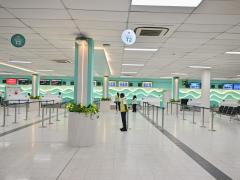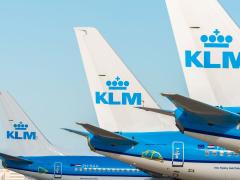Despite growing awareness about the importance of sustainability globally, a mere 16% of UK travellers hold sustainability as their travel priority.
In South Africa, commitment to the environment in the travel sense also seems fragile. In a poll by Travel News in August 2022, 53% of agents said the importance their clients attached to offsetting their carbon footprint had not increased since 2019.
However, another TN poll in April 2023 showed that 51% of agents confirmed that their clients were now in fact asking for train trips instead of short-distance flights for travel in Europe.
"Businesses want to go green, they truly do. But wrestling with immediate cost concerns and a lack of accessible sustainable options often tips the balance away from the eco-friendly route," says Bonnie Smith, General Manager of FCM.
Smith says that most businesses have drafted impressive sustainable travel guidelines, with their employees at the ready to endorse these eco-initiatives. “Yet when the rubber meets the road—or perhaps more aptly, when the plane meets the sky—priorities tend to waver and cost and convenience take priority,” she says.
The numbers
A recent survey conducted by Emburse, a travel and expense management solutions provider, reveals some eyebrow-raising statistics. Whilst a commendable 71% of businesses have sustainability policies or guidelines in their arsenal, only 37% ensure these policies see the light of day when travels are booked.
It’s partly due to the lingering economic shadow of the pandemic. Budgets have tightened, and 31% of travellers now place cost-effectiveness at the top of their priority list, allowing sustainability to slip to the bottom rungs.
Expectations also seem to differ across the boardroom table as 71% of employees firmly believe it's up to their employers to guide the way in sustainable travel, yet many businesses expect their travelling workforce to lead the charge.
This cyclical blame game, where responsibility is tossed back and forth, often results in inaction, explains Smith. Although businesses might be vocal about their green policies, unless these are tangibly enforced or incentivised, employees often find themselves veering towards cost-saving shortcuts. So, is it possible for sustainability and cost-effectiveness to share the limelight?
Local perspective
South Africa faces a unique set of challenges in the sustainable travel arena, according to Smith. With economic inequalities and constraints, South Africa's corporate sector often finds itself in the tough spot of juggling costs.
The availability of sustainable travel options in South Africa isn't widespread. Remote areas sometimes lack eco-friendly choices, making it trickier for companies to uphold their green commitments.
Moreover, there's an awareness gap. While urban centres like Cape Town or Johannesburg may be more plugged into global eco-trends, spreading awareness to a broader corporate audience is still a work in progress. Smith emphasises the need for continuous training, workshops, and dialogue to keep the importance of sustainable travel at the forefront of employees' minds.
Towards solutions
Smith admits that some companies feel that they aren’t sure of the starting point when it comes to green travel. She says this is precisely where a TMC can help.
Smith believes one of the core functions of a TMC is to identify the suppliers that are best able to suit the client’s needs and also identify the locations and transport options that meet their requirements, or suggest offsetting projects to mitigate the travel’s impact.
There are several other steps a corporate client can take to incorporate sustainability in its travel policy. Smith is a strong advocate for clear, actionable steps:
Transparency through reporting: Detailing the carbon footprint of travels enables employees to fathom the true environmental implications of their choices.
Collaborative endeavours: Collaborations with other green-committed entities can exponentially increase a company's positive environmental footprint.
Rewarding sustainable decisions: Tangible incentives can sway decisions. When the benefits of eco-friendly choices are evident, employees are more inclined to adopt them.
Knowledge is power: Through workshops and continual dialogues, the essence of sustainable travel can become an integral part of corporate DNA.
"Sustainability in corporate travel is far from a mere trend. It's a commitment to our planet. The pivotal question is whether businesses will walk the sustainable walk or remain content with eloquent green rhetoric. With its unique challenges yet untapped potential, South Africa could very well set the benchmark. The choice, and the journey, is ours to make,” said Smith.













